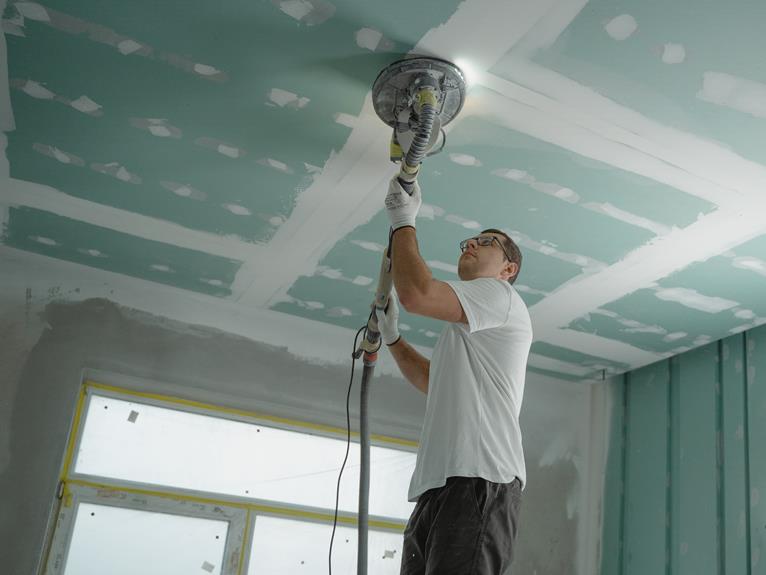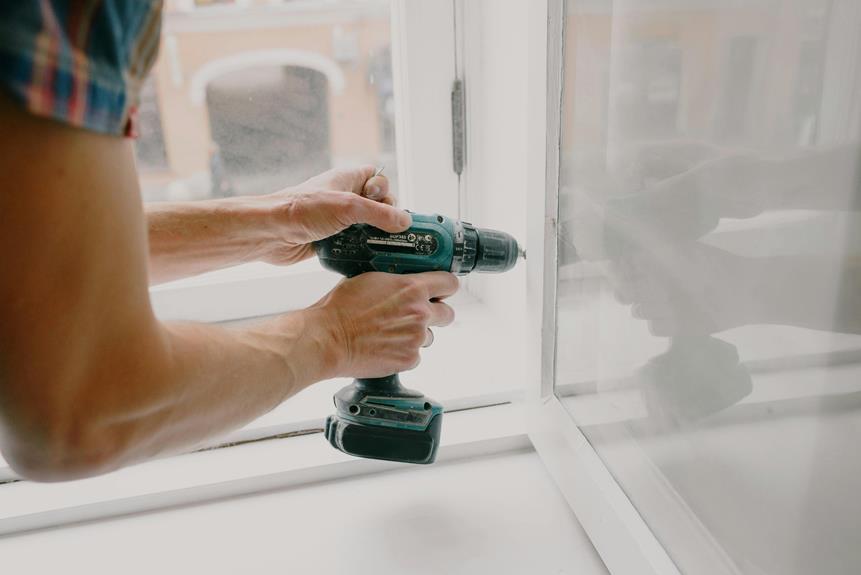Embarking on a home renovation project requires careful planning and budgeting for success. To help you navigate the financial aspects, here are 15 tips. These tips will equip you with the knowledge and tools to make the most of your budget, whether you’re planning a small update or a major overhaul.
Read on to discover how you can maximize your resources and achieve your renovation goals.

Set a Renovation Budget
When starting your home renovation project, it’s important to set a budget that aligns with your financial goals and limitations. Setting a realistic budget is crucial because it ensures that you don’t overspend and end up in a financial bind. It also allows you to prioritize your renovation goals and make informed decisions about what you can afford.
There are several ways to save on renovation costs and make your budget go further. First, consider taking on some of the work yourself. DIY projects can save you a significant amount of money on labor costs.
However, it’s important to be realistic about your skills and abilities. If you’re not confident in your abilities, it’s better to hire a professional to avoid costly mistakes.
Another way to save money is by shopping around for materials and fixtures. Compare prices from different suppliers and keep an eye out for sales or discounts. You can also consider using recycled or reclaimed materials, which can add unique character to your home while saving you money.
Additionally, it’s important to factor in unexpected costs and contingencies when setting your budget. Renovations often come with surprises, such as hidden damage or unforeseen complications.
Having a buffer in your budget will help you handle these unexpected expenses without derailing your project. Setting a realistic budget is essential for a successful home renovation.
Assess the Scope of the Project
Before you start your home renovation, it’s important to take the time to evaluate the scope of the project and determine the extent of the work that needs to be done. This will help you understand your renovation needs and evaluate the feasibility of the project.
Here are four important aspects to consider:
- Evaluate your home’s current condition: Take a walk through each room and make note of any necessary repairs or upgrades. This will help you identify the areas that need the most attention and prioritize your renovation plans.
- Consider your long-term goals: Think about how you envision your home in the future. Are you planning to stay in the house for a long time? Do you want to increase its value? Understanding your long-term goals will guide your decision-making process and ensure that your renovation aligns with your vision.
- Determine your budget: Assess your financial situation and set a realistic budget for your renovation. This will help you determine the scale of the project and make informed decisions about the materials, labor, and design elements you can afford.
- Consult with professionals: Seek advice from architects, contractors, or interior designers to get their expert opinions on your renovation needs. They can provide valuable insights and help you assess the feasibility of your project.
Prioritize Your Renovation Goals
When renovating your home, it’s important to prioritize your goals. By doing so, you can ensure that your project stays on track and within your budget. One factor to consider is your renovation timeline.
If you have a specific deadline, such as hosting a family gathering, you may want to prioritize renovations to the living room or kitchen to ensure they’re ready in time. Setting realistic expectations for your timeline can help avoid stress.
Another consideration is setting realistic goals within your budget. Prioritize renovations that will have the greatest impact on your daily life and overall satisfaction with your home. This could include upgrading the kitchen or bathroom, improving energy efficiency, or creating more functional living spaces.
Research and Compare Costs
Start by researching and comparing the costs of materials, labor, and other necessary expenses for your home renovation project. This step is crucial to ensure that you stay within your budget and make informed decisions. Here are four tips to help you with this process:
- Research contractors: Take the time to find reputable contractors in your area. Look for reviews and testimonials from previous clients to get an idea of their workmanship and reliability. Request quotes from different contractors to compare prices and services offered.
- Compare material costs: When it comes to materials, it’s important to compare prices from different suppliers. Don’t settle for the first option you find. Look for discounts, and sales, or consider purchasing second-hand materials if they’re still in good condition. This can help you save money without compromising on quality.
- Get multiple estimates: Seek estimates from multiple contractors. This will give you a better understanding of the average cost for your renovation project. Keep in mind that the lowest estimate may not always be the best option. Consider the contractor’s reputation, experience, and the quality of their work before making a decision.
- Consider hidden costs: Factor in any additional expenses that may arise during the renovation process. This could include permits, unexpected repairs, or temporary accommodation if needed. By considering these hidden costs upfront, you can avoid surprises and adjust your budget accordingly.
Create a Detailed Cost Estimate
To create a detailed cost estimate for your home renovation project, carefully analyze the expenses associated with materials, labor, and other necessary factors. It’s important to have a clear understanding of the costs involved to avoid any surprises along the way.
Creating a detailed timeline will help you stay organized and ensure that you complete the project within the desired timeframe. Determining the return on investment (ROI) is crucial to ensure that the money you invest in the renovation will pay off in the long run.
Here is a breakdown of the costs you should consider when creating your cost estimate:
Materials: Calculate the cost of materials such as lumber, paint, tiles, and other necessary supplies. Be sure to research prices and consider any discounts or sales that may be available.
Labor: Estimate the cost of hiring professionals such as contractors, plumbers, electricians, and other skilled workers. Take into account their hourly rates or project-based fees.
Permits: Factor in the cost of obtaining any necessary permits and licenses for your renovation project. Research the requirements in your area and budget accordingly.
Equipment: Determine whether you’ll need to rent or purchase any tools and equipment for the project. Consider the cost of rentals or the purchase price if you plan to buy.
Contingency: Set aside a contingency fund for unexpected expenses that may arise during the renovation. It’s important to have some extra money available in case of unforeseen circumstances.
Consider DIY Vs. Hiring Professionals
Once you have created a detailed cost estimate for your home renovation project, it’s time to consider the benefits and drawbacks of doing the work yourself versus hiring professionals. Here are some factors to consider and tips to help you make the right decision:
- Skill Level and Experience: Consider your abilities. Are you confident in your ability to complete the project to a high standard? If not, it may be better to hire professionals.
- Pros and Cons: DIY projects can save you money on labor costs, but they can also be time-consuming and may require specialized tools or knowledge. Hiring professionals ensures that the job is done correctly and efficiently, but it can be more expensive.
- Budget: Take into account your budget and the scope of the project. For small, simple renovations, DIY might be a viable option. However, for larger, more complex projects, it’s often best to leave it to the professionals.
- Time and Stress: Consider the amount of time and stress you’re willing to invest in the project. DIY projects can be fulfilling, but they can also be demanding and time-consuming. Hiring professionals allows you to focus on other aspects of your life while they handle the renovation.
Ultimately, the decision between DIY and hiring professionals depends on your skills, budget, and personal preference. Take the time to evaluate these factors before making a final choice.
Allocate Funds for Unforeseen Expenses
When planning your home renovation project, it’s important to set aside funds for unexpected expenses. No matter how well you plan, there are always unforeseen costs that can catch you off guard.
To help you manage these expenses, here is a table outlining some common unforeseen costs and their estimated budgets:
- Structural Issues: $5,000 – $10,000
- Plumbing Problems: $2,000 – $5,000
- Electrical Upgrades: $3,000 – $7,000
Look for Ways to Save Money
Let’s explore some ways to save money during your home renovation project. Here are four practical tips to help you cut costs and make your renovation more affordable:
- Do It Yourself: Save money by taking on some of the renovation tasks yourself. From painting walls to installing fixtures and laying tiles, there are plenty of DIY projects that can be done with a little research and effort. This not only saves you money on labor costs but also gives you a sense of accomplishment and ownership over your project.
- Compare Prices: Before making any purchases for your renovation, be sure to shop around and compare prices. Research different suppliers and retailers to find the best deals on materials, appliances, and furniture. By being diligent in your search, you can often find significant savings and discounts that can help stretch your renovation budget further.
- Repurpose and Recycle: Instead of buying brand-new items for your renovation, consider repurposing or recycling existing materials. Give old furniture a fresh coat of paint or repurpose old doors and windows. Not only will this save you money, but it will also add a unique and personal touch to your renovation.
- Prioritize and Plan: When working with a limited budget, it’s important to prioritize your renovation goals and plan accordingly. Focus on essential repairs and upgrades first, and then allocate any remaining funds to less critical projects. By being strategic and realistic about your renovation goals, you can ensure that you stay within your budget while still achieving your desired results.
Explore Financing Options
When it comes to funding your home renovation project, it’s important to explore different financing options. One option to consider is a personal loan. This type of loan allows you to borrow a specific amount of money and repay it over a fixed period.
Personal loans offer flexibility in terms of loan amount and repayment terms but keep in mind that the interest rates may be higher compared to other options.
Another option is a home equity loan, where you borrow against the equity in your home. Home equity loans typically have lower interest rates compared to personal loans, and the interest may be tax-deductible.
However, it’s important to remember that using your home as collateral means you could risk losing it if you’re unable to make the loan payments.
A home equity line of credit (HELOC) is also worth considering. With a HELOC, you can borrow against the equity in your home, but it works more like a credit card. You have a maximum credit limit and only pay interest on the amount you borrow.
Before making a decision, carefully evaluate the pros and cons of each financing option to determine which one best suits your needs and financial situation. It’s always a good idea to consult with a financial advisor or lender to get personalized advice.
Track Your Expenses
To effectively manage your home renovation budget, it’s important to track your expenses. By closely monitoring your spending, you can stay within your budget and avoid surprises. Here are four ways to track your expenses and the benefits of doing so:
- Use a budgeting app: There are plenty of budgeting apps available that can help you easily track your expenses. These apps allow you to categorize your spending, set financial goals, and receive alerts when you exceed your budget. By having all your expenses in one place, you can easily monitor your progress and make adjustments as needed.
- Keep receipts and records: It’s important to keep all your receipts and records of your home renovation expenses. This won’t only help you track your spending but also come in handy during tax season. Organized records make it easier to calculate your deductions and ensure you’re claiming everything you’re entitled to.
- Regularly review your expenses: Set aside time each week or month to review your expenses. Look for any patterns or areas where you may be overspending. By regularly reviewing your expenses, you can identify any areas where you can cut back and save money.
- Create a spreadsheet: If you prefer a more hands-on approach, create a spreadsheet to track your expenses. This allows you to customize your tracking system according to your needs. You can create different categories, add formulas to calculate totals, and easily update your expenses as you go.
Tracking your expenses has numerous benefits. It helps you stay on top of your budget, identify any unnecessary spending, and make informed decisions about your renovation project.
Avoid Scope Creep
To prevent your home renovation project from expanding beyond its intended scope, it’s important to establish clear boundaries and communicate them effectively. Avoiding project delays and managing contractor expectations are key to keeping your project on track.
Scope creep occurs when the project starts to deviate from its original plan, leading to additional expenses and potential delays. To avoid this, clearly define the scope of work with your contractor from the beginning. Communicate your expectations and ensure they’re understood.
Regularly review the progress of the project to ensure it aligns with the agreed-upon scope. If any changes need to be made, discuss them with your contractor and determine the impact on the budget and timeline. It’s important to address any potential scope creep early on to prevent it from spiraling out of control.
Review and Adjust Your Budget as Needed
Once you have set clear boundaries and managed your contractor’s expectations to prevent scope creep in your home renovation project, it’s important to review and adjust your budget as needed. This step is crucial to ensure that you stay on track financially and avoid any unexpected expenses.
Here are four tips to help you effectively adjust your budget and monitor your expenses:
- Regularly review your budget: Take the time to go over your initial budget and compare it to your current spending. Identify any areas where you may be spending too much and make adjustments accordingly.
- Track your expenses: Keep a detailed record of every expense related to your home renovation project. This will allow you to see where your money is going and help you identify any areas where you can cut back if necessary.
- Prioritize your expenses: Determine which aspects of your renovation are most important to you and allocate your budget accordingly. This will help you make informed decisions about where to spend and where to save.
- Be prepared for unexpected costs: No matter how well you plan, there may still be unexpected expenses that arise during your home renovation. Make sure you have a contingency fund set aside to cover these costs without derailing your budget.
Get Multiple Quotes for Supplies and Services
When renovating your home, it’s important to get multiple quotes for supplies and services to ensure you get the best value. Start by researching and reaching out to different suppliers and service providers in your area.
Ask for quotes based on the specific materials and services you need. This will give you a better understanding of market prices and potential cost-saving opportunities.
Once you have gathered several quotes, take the time to analyze and compare them. Look for any differences in pricing or quality. Consider the reputation and reliability of each supplier or service provider as well.
During discussions and negotiations, be prepared to ask questions and express your budget limitations. This will give you the chance to explore alternative options that could save you money without compromising quality.
Utilize Cost-Saving Strategies
Save money on your home renovation project by using cost-saving strategies. Here are some budget-friendly renovation ideas and techniques that can help you achieve your desired results without overspending:
- Reuse and repurpose: Instead of buying new materials, consider repurposing or reusing items you already have. For example, transform old furniture with a fresh coat of paint or turn old doors into unique decorative pieces.
- Focus on essentials: Prioritize the essential aspects of your renovation and allocate your budget accordingly. By focusing on what matters, you can avoid spending on unnecessary extras and stay within your budget.
- Do-it-yourself: Take on some tasks yourself to save on labor costs. Simple projects like painting walls or installing shelves can be done with basic tools and a little research. However, hire professionals for more complex tasks to avoid costly mistakes.
- Shop smart: Compare prices and look for sales, discounts, and deals on materials and supplies. Consider buying in bulk or waiting for seasonal sales to get the best prices. Additionally, check online marketplaces and local classifieds for second-hand items that can save you money.
Celebrate Your Budgeting Success
Congratulations on successfully sticking to your renovation budget and achieving your desired results! You have worked hard and made sacrifices to stay on track with your budgeting milestones.
Now it’s time to celebrate your budgeting success and reward yourself for your dedication.
Celebrating your budgeting milestones isn’t just about treating yourself, but also about recognizing the discipline and effort you have shown throughout the renovation process. It’s a way to acknowledge your accomplishments and give yourself a well-deserved pat on the back.
When it comes to celebrating, it doesn’t have to be extravagant or expensive. It could be as simple as enjoying a special dinner at your favorite restaurant or treating yourself to a relaxing spa day. The key is to choose a reward that aligns with your personal preferences and fits within your budget.
Remember, the purpose of celebrating your budgeting success is to reinforce positive behavior and motivate yourself to continue staying on track.
Conclusion
By setting a budget, prioritizing your goals, and researching costs, you have taken important steps toward achieving a successful outcome.
For instance, Amarah and Tim had a tight budget for their kitchen remodel. They discovered cost-saving strategies such as repurposing their old cabinets and hiring a local contractor, allowing them to create their dream kitchen without exceeding their budget.
Remember, with careful planning and smart choices, you can also achieve your renovation goals within your budget.












